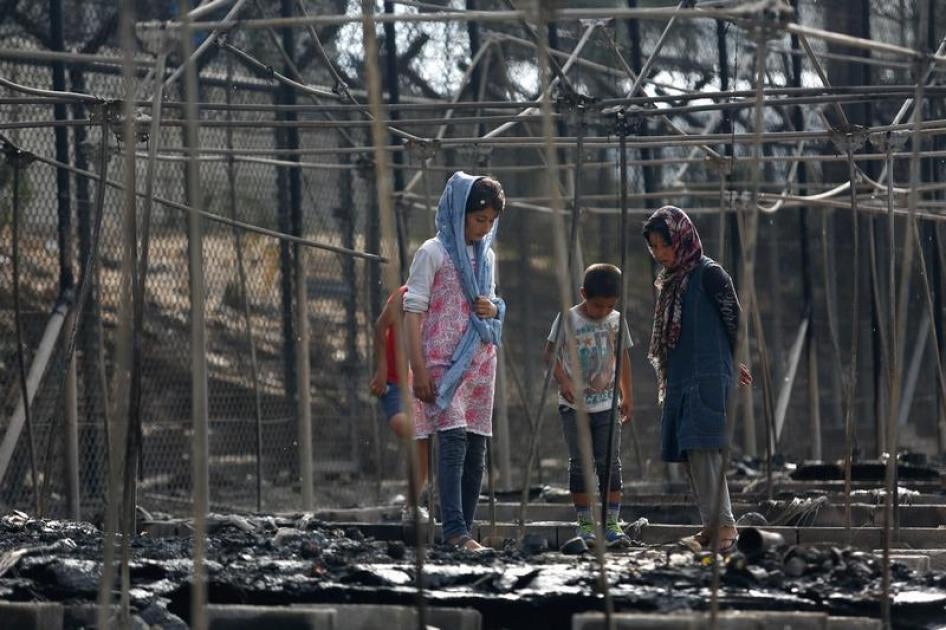Monday’s night fire at Moria, Greece’s biggest refugee “hotspot” on the island of Lesbos, is a stark reminder of the dangerous impact of both the European Union’s flawed refugee policies and Greece’s failure to provide genuine protection to asylum seekers and migrants throughout the country.
Reports say that fire swept through the facility, destroying tents and shelters, and prompting the evacuation of some 4,400 residents, including dozens of unaccompanied children. Several people reportedly suffered light injuries from the fire.
The cause of the fire is still unknown, but it appears to have started during a protest against conditions at the facility, and a rumored deportation to Turkey. The EU signed a deal in March to allow the return to Turkey of almost all asylum seekers, on the deeply-flawed grounds that Turkey is a safe country of asylum. While Greek asylum courts have, so far, blocked the vast majority of returns on this basis, thousands of asylum seekers who arrived after March have been kept on islands and forbidden from moving on, often living for months in abysmal conditions while their claims are processed.
Human Rights Watch has warned on numerous occasions of the dangers of keeping people in conditions that has been described to us as “unfit for animals.” We have documented severely overcrowded and filthy conditions in Moria and on other islands, where police fail to protect camp residents – including women and children – from violence and harrassment. The longer people are forced to live in such conditions, the more likely it is for tensions to build and violence to erupt.
The fire also took place against a backdrop of far-right extremism and anti-immigrant rhetoric. On the day of the fire, some 500 local residents protested the migrants’ presence on Lesbos. At a similar protest last week in Chios, journalists covering the event were attacked.
Authorities and aid groups are now scrambling to re-house the fire’s evacuees. A European Commission spokeswoman suggested after the blaze that transfers from the islands to the Greek mainland should remain limited. But the immediate concern should be finding safe shelter for those made homeless by the fire. That should take precedence over the commission’s desire to “avoid secondary movement to the rest of Europe.”
And EU countries can help too, not just with financial and other assistance to Greece, but by speeding up the terribly slow relocation of asylum seekers out of the country. Because it’s painfully clear that warehousing asylum seekers in Greece, in an increasingly volatile situation, not only compounds human misery but is dangerous, too.









